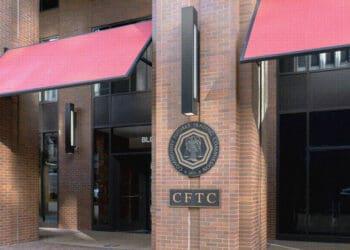The broad-daylight killing of UnitedHealthcare CEO Brian Thompson was stunning not just for its brazenness but for the public response, which in some corners seemed to celebrate Thompson’s murder. Social scientist Caterina Bulgarella explores the long-simmering dynamics that turned a murder on the streets of New York City into a revealing moment about leadership failures, fairness and the dangerous erosion of ethical norms.
A gasp across the public echoed the thud of the gunshots that, on a gelid December morning late last year, killed Brian Thompson, UnitedHealthcare CEO, a mere few feet away from the investor conference he was about to join. Etched on the bullet cases shot to kill the CEO, a message made it clear why he had paid with his life. A common practice within the health insurance industry to deny patients care on the basis of contractual terms, an approach considered unfair by many, appeared the catalyst to this heinous act.
As Thompson’s murder percolated collective consciousness, outrage and disbelief quickly mixed to support and curiosity for Luigi Mangione, the man accused of killing him. The retributive nature of Thompson’s killing may have triggered a tit-for-tat feeling. But the widespread interest in Mangione’s fate — whether in the form of people rooting for his escape, contributing to defense funds in his name, or simply justifying his actions — suggests more than a fleeting sense of vicarious justice.
Viewed in the context of the growing violence against symbols of power and powerholders, Thompson’s death and the subsequent show of approval for Mangione signal resentment and a sense of unfairness but also a dangerous acceptance of norm-breaking behavior. These three conditions together may undermine shared norms and justify unethical conduct, increasing the likelihood of new deviant behavior.
Unpacking resentment toward leadership
As the CEO of a health insurance company, Thompson held a leadership role laden with power and symbolism. From afar, he was in a position influential enough to shape business practices that could affect people’s health and their very lives. To many, including those denied or at risk of being denied insurance coverage for healthcare services, his role did not stop at making decisions regarding patients’ access to life-saving care. It also encompassed broad responsibilities, such as the fair and ethical conduct of the business he led.
Studies on people’s response to leader unfairness corroborate the notion that the moral duties implicitly ascribed to leadership may turn those at the helm into targets of harsh penalties. For example, not only are people inclined to seek severe punishment when leaders violate fairness norms, but they are also likely to view unfairness as a betrayal of leadership responsibilities.
Analyzed in the context of the broader pattern of violence toward political and business powerholders, the perception that leaders may not live up to their obligations helps explain the brewing resentment we are witnessing today. While there are discordant, even polarized, views on what a leader’s duties entail, fairness and ethics remain core drivers of leadership effectiveness. And for important reasons. On the one hand, followers look at leadership fairness to decide if the leader respects and values them. On the other, fairness is a key component of ethical leadership and, as such, a core aspect of the group’s moral identity.
Indeed, if people resent leaders for not acting fairly, they must also fault them for failing to provide important symbolic resources — from meaningful ethical guidance to unquestionable integrity to group unity and an overarching sense of purpose.
That is, while leadership unfairness is a potent factor in shaping individual and group conduct, it more profoundly underscores a void in ethical leadership.
In Fractious Political Times, How Do Leaders Keep Teams Together?
Ethical frameworks can help managers avoid taking sides while they foster understanding
Read moreDetailsUnderstanding the role of unfairness
Fairness is rich with positive meaning and pregnant with beneficial outcomes for both self and the group. No wonder unfairness generates anger and disappointment. But resentment alone doesn’t explain Thompson’s killing and the public’s response to it.
Two other mechanisms must be considered.
First, since unfairness breaks the rules of harmonious cooperation, people are more likely to look for tit-for-tat responses, even vicarious or symbolic ones, to hold the unjust party accountable. Second, unfairness implicitly creates a permission structure that makes it easier to engage in unethical or deviant conduct. Imagine someone who feels wronged and subsequently has the opportunity to right the wrong they perceive by acting unethically. In such a situation, unfairness may tip the scale toward choosing norm-breaking conduct.
Notably, when unfair outcomes get compounded with unfair procedures and/or disrespectful treatment, the negative effects of unfairness grow in magnitude. Take the relationship between customers and health insurance providers. While structured as a formal cooperation (e.g., signing a contract, accepting pre-set rules, etc.), it remains fraught with limitations. Thus, not only are customers exposed to consequential negative outcomes, but they have little influence over their providers’ decisions. And they may feel overlooked, disregarded or ignored as they negotiate access to critical services.
It is in such situations that, instead of feeling wronged, people may feel victimized, thereby losing trust in and/or becoming suspicious of who is in a leadership role.
To make matters worse, high uncertainty, like the constant turbulence that is shaping the present time, further exacerbates the effects of unfairness. Faced with technological and demographic change, growing economic differences, dwindling opportunities, a sense of impermanence generated by a global pandemic and other forms of volatility, people, especially those in younger generations, feel increasingly anxious.
But as the need for reassurance and guidance grows stronger, leadership conduct, especially the leader’s role as steward of fairness norms, acquires extra meaning. By the same token, since people are more likely to rely on those in power to develop a sense of personal security, leadership unfairness becomes even more threatening.
Factoring in the role of norm-breaking behavior
The support for Thompson’s alleged killer may have stemmed from a sense of unfairness. But as a favorable response to deviant conduct, any public display of approval, even a passive one, must have required a reframing of the grave actions that led to the CEO’s death. While not unprecedented, such discounting is unusual, as even in response to unfairness, people prefer non-harmful punishment.
Since the act of discounting deviant actions is also a way to violate shared norms, it entails social and emotional costs. Still, the price for openly supporting deviant conduct is less steep in an environment increasingly indifferent to norm-breaking behavior.
But such is the context in which we live today.
Whether it is politics, civil engagement, work or some other realm, people are both witnessing and partaking in a profound shift in shared norms and values. In this new climate, lying gets euphemized as not telling the truth. Past misconduct is no longer relevant when assessing leadership fitness. Violent actions in response to unwanted electoral outcomes take on the meaning of love for country. And principles like diversity and inclusion turn into sources of inequality and social discord.
Simultaneously, not only are leaders acting more chaotically but in bold defiance of mainstream values. And while many seem to respond to this new script by leaning into the norm-breaking conduct of charismatic powerholders, their overt approval is a way to accommodate eroding norms without the discomfort of cognitive dissonance.
Indeed, even the tactic of giving charismatic leaders full-throated support doesn’t placate the need for ethical leadership. Thus, as values become polarized and depleted of ethical meaning, leadership fairness is all people are left with to test a leader’s benevolence and integrity.




 Caterina Bulgarella is co-founder and managing director of Be Thread, a platform of advisory services and apps to enable the future of ethical work. She’s helped businesses address some of today’s most fundamental challenges: engaging employees, building work processes on the foundations of trust and purpose; developing a strong ethical culture; creating leadership capacities for an era of fast change and deep complexity; and nurturing inclusive belonging. A social scientist with deep expertise in culture measurement and the design of data-driven organizational practices, Bulgarella has contributed to organizations’ understanding of conduct risk through theoretical and applied research interventions. She holds a Ph.D. in organizational psychology from New York University (NYU). She is a leadership strategy fellow at the American College’s Maguire Center for Ethics. She also teaches leadership strategy in the I/O psychology master program at NYU.
Caterina Bulgarella is co-founder and managing director of Be Thread, a platform of advisory services and apps to enable the future of ethical work. She’s helped businesses address some of today’s most fundamental challenges: engaging employees, building work processes on the foundations of trust and purpose; developing a strong ethical culture; creating leadership capacities for an era of fast change and deep complexity; and nurturing inclusive belonging. A social scientist with deep expertise in culture measurement and the design of data-driven organizational practices, Bulgarella has contributed to organizations’ understanding of conduct risk through theoretical and applied research interventions. She holds a Ph.D. in organizational psychology from New York University (NYU). She is a leadership strategy fellow at the American College’s Maguire Center for Ethics. She also teaches leadership strategy in the I/O psychology master program at NYU. 







